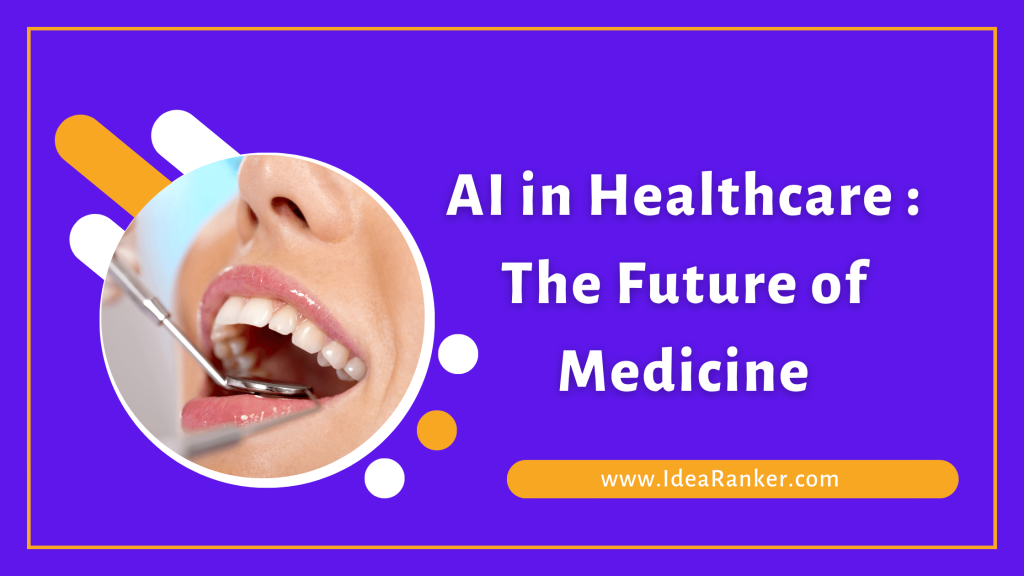AI in Healthcare
Artificial intelligence (AI) has emerged as a groundbreaking force in reshaping the healthcare landscape. Its integration into various facets of the medical field has not only enhanced efficiency but has also opened new doors for innovation and improved patient outcomes.
In recent years, AI has become a driving force in revolutionizing healthcare practices. The ability of machines to process vast amounts of data and draw meaningful insights has found extensive applications in diagnostics, personalized medicine, drug discovery, and even healthcare management.
Evolution of AI in Healthcare
The journey of AI in healthcare dates back to the early days of computer technology. Over the years, we’ve witnessed significant milestones, from basic applications to the sophisticated algorithms powering today’s medical advancements.
Applications of AI in Diagnostics
One of the notable contributions of AI in healthcare is its role in diagnostics. Medical imaging, such as X-rays and MRIs, benefits from AI’s ability to analyze images with unparalleled precision, leading to more accurate and timely diagnoses.
AI in Personalized Medicine
Personalized medicine, tailoring treatments to individual patients based on their unique characteristics, has become a reality with the help of AI. This approach not only improves treatment efficacy but also reduces adverse effects..
Role of AI in Drug Discovery
The drug discovery process, historically lengthy and resource-intensive, has been significantly expedited by AI. Machine learning algorithms can analyze vast datasets, identifying potential drug candidates and expediting the path from discovery to market.
Virtual Health Assistants and Chatbots
AI-driven virtual health assistants and chatbots have transformed patient interactions. These digital companions provide instant medical advice, answer queries, and even monitor patient health, promoting proactive healthcare management.
Challenges and Concerns
While AI brings numerous benefits, it also raises valid concerns. Issues of data privacy, security, and the ethical implications of AI decision-making in healthcare settings need careful consideration to ensure responsible implementation.
Future Trends in AI and Healthcare
Looking ahead, advancements in machine learning algorithms and the integration of AI with other technologies like the Internet of Things (IoT) promise even more sophisticated healthcare solutions. These trends will continue to drive the evolution of medical practices.
AI in Healthcare Management
Administrative tasks in healthcare can be time-consuming. AI streamlines these processes, reducing the burden on healthcare professionals and improving overall system efficiency.
Impact of AI on Healthcare Professionals
The role of healthcare professionals is evolving in tandem with the adoption of AI. Training and education programs must adapt to ensure that professionals can leverage AI technologies effectively.
Patient Empowerment through AI
AI not only benefits healthcare providers but also empowers patients. Access to health information and the use of wearable devices for personal health monitoring contribute to a more engaged and informed patient population.
Global Adoption of AI in Healthcare
AI adoption in healthcare varies globally. Collaborative efforts between countries and regions are crucial for ensuring that AI benefits are accessible to all, regardless of geographical location.
AI and Pandemic Response
The COVID-19 pandemic showcased AI’s rapid response capabilities. From predictive modeling to vaccine development, AI played a pivotal role in managing the crisis, highlighting its potential in future health emergencies
Public Perception of AI in Healthcare
Building public trust in AI applications is essential. Understanding and addressing concerns related to transparency, accountability, and the reliability of AI-driven healthcare solutions will be pivotal for widespread acceptance.
In conclusion, the integration of AI in healthcare marks a transformative era in medicine. As we navigate the challenges and harness the opportunities presented by AI, the future promises improved patient care, more efficient healthcare systems, and continued advancements in medical research.

Leave Your CommentCancel reply